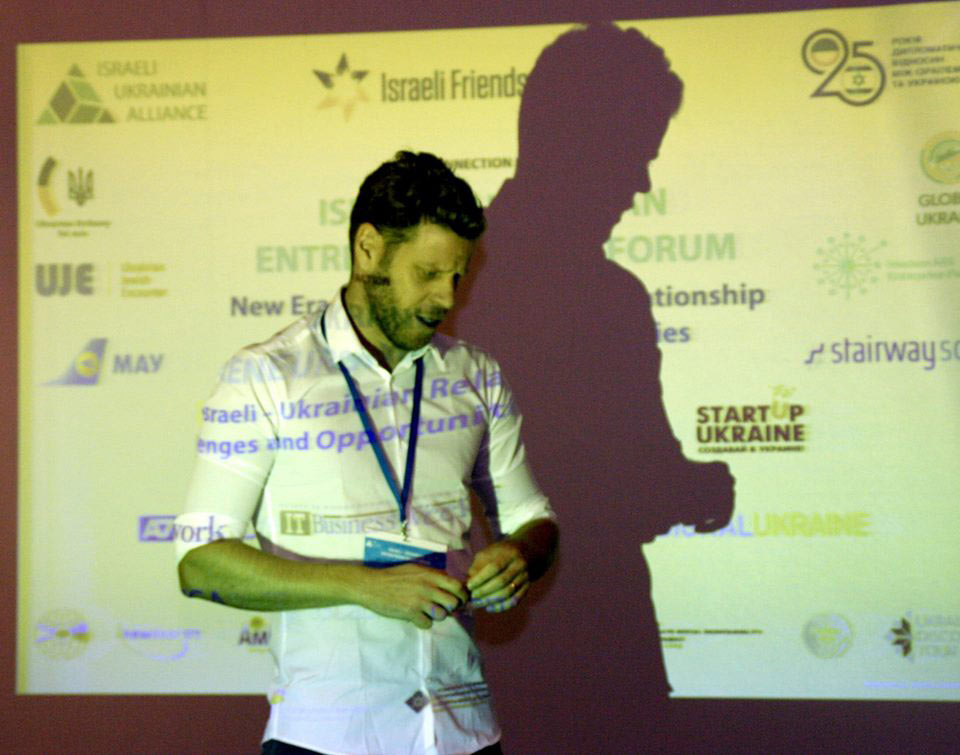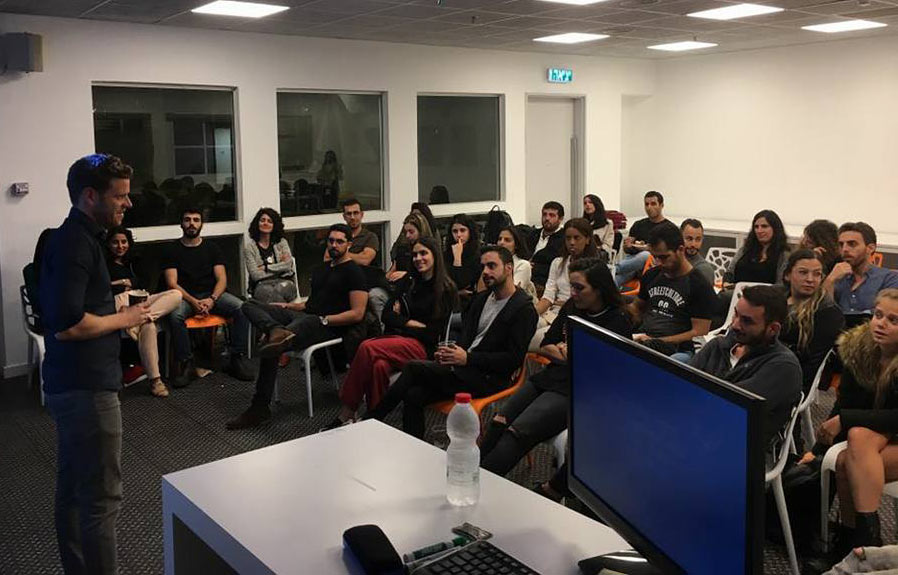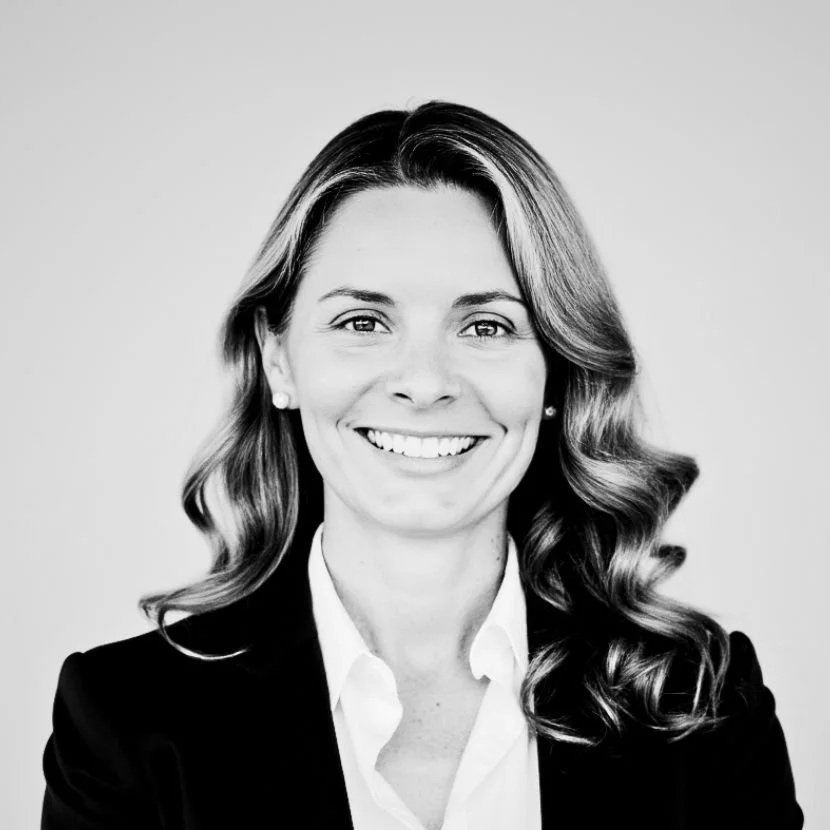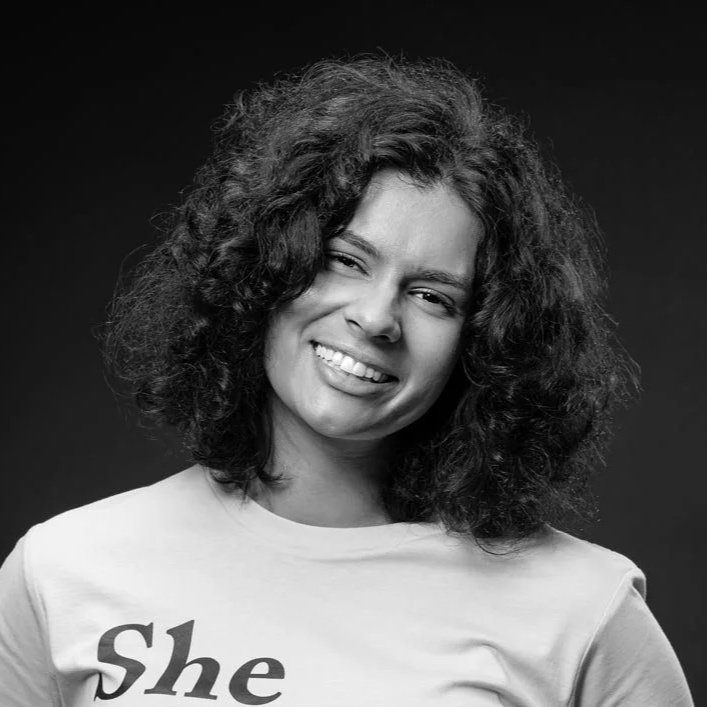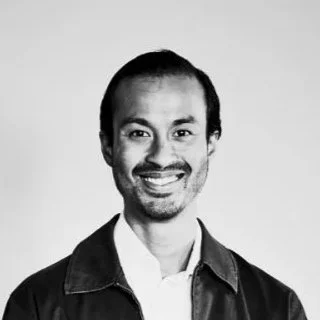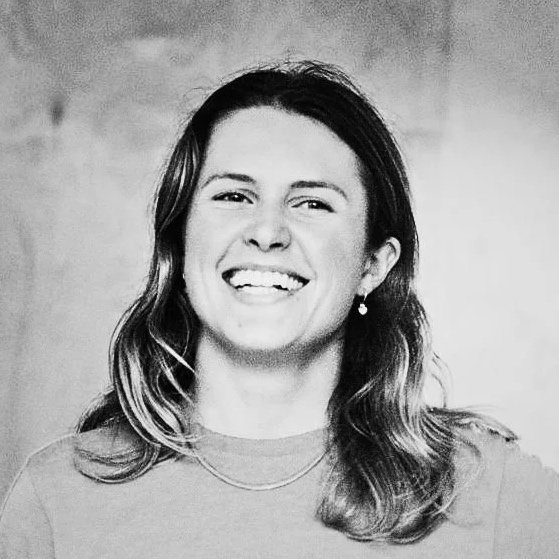Ofer Flynn On Social Enterprise In Israel & Creating Profitable Social Businesses
It's been a decade since Ofer Flynn changed his professional path and decided to start a career combining his vast experience in the business sector with his passion to tackle social and economic challenges in Israel.
He chooses to work in the social-environmental business field and in developing and establishing social business ventures in cooperation with third sector organisations, governmental institutions, businesses, and entrepreneurs.
Ofer is the owner of few social businesses that help youth at risk, people with mental and physical disabilities, and women from low socio-economic backgrounds.
He also leads a Social Entrepreneurship Program in collaboration with one of the honourable Academic Centres in Israel, and is the main team member in accelerators and development programs for NGO's.
Ofer discusses why a purely social purpose isn't enough, he talks about the mental challenges entrepreneurs can face and shares the best tools to start to measure and track your impact.
Highlights from the interview (listen to the podcast for full details)
[Amedeo Watson] - To start things off, could you please share a bit about your background and what led you down the path of social enterprise and purpose-based business? [2:29]
[Ofer Flynn] - My story is kind of a regular story, not a unique story. Although, every time I lecture about social businesses, people think that this is like a fairytale. But actually, since I finished my period in the Israeli army at the age of 21, I tried to build a career as an independent businessman. I started to work and climb my way up the restaurant market in Israel. It was a great way to learn how to develop and run businesses and I gained a lot of experience, contacts, and skills, but I understood that this is not the future that I sought. I tried to seek purpose, to get something else fulfilling rather than just making money, and I started to work with charities and NGOs and enjoyed helping them with my business skills - to help them to succeed. But then I realised that there are a lot of difficulties in the social sector in Israel about how to raise money and how to gain funds for projects.
About a decade ago, I realised that there's a huge separation between how businesses think and act in Israel and how charities and NGOs act. I thought - Why don't we combine those things?
Why don't we take the best things from businesses and work with them in order to to do good? Then I came across the social business model and I understood there is a way and that there actually is a fourth sector in the world.
I started to read about it and hear about it. I contacted a few people that worked in this sector abroad, outside Israel, and I understood at that moment that this was my future - I was going to build social businesses in Israel, I was going to help to raise that market in Israel; and that's it. Since then I've never looked back.
Interesting. So you were inspired early on and that is what ultimately inspired you to create your enterprise that you have now - ForPurpose Israel. I'm curious to hear a bit more about ForPurpose Israel. What projects are you currently involved in? [4:42]
Well, before I started ForPurpose Israel I was a partner in a company called ESCO (Environmental and Social Companies), developed by my best partner and amazing person Nir Gordon. For six years we’d been working together, helping private entrepreneurs, NGOs, charities and governmental institutes to build social business models. Then I understood that we needed to go our separate ways in order to fulfil our life mission and I started ForPurpose Israel. I work with either charities, solo entrepreneurs, big corporations - but we do the same thing. We build a sustainable social business model in order to tackle a major social problem in Israel, and do it by making money and having a sustainable income generating business. A few interesting projects - I have worked on a lot of projects - are Salta, for example. Salta is a social business that helps youth at risk to tackle problems with their health and nutrition. We teach youth at risk how to buy healthy food at a low cost, how to make their own meals, and how to cook for their friends, their families and their communities. In order to develop a kind of health leader in the community. Most of the youth at risk in Israel have obesity problems and nutrition problems. We understood that instead of lecturing them and trying to tell them what to eat and how to eat, we would just help them cook and eat by themselves and it's an amazing program. We work with the government on it. We work with 15 institutes in Israel and right now we're starting to expand and work with other societies - like people with mental needs. It's an amazing project and it's very profitable. Another interesting project is the ‘Make a Wish' charity - an international charity that helps kids that have a hard illness like cancer or leukaemia to make a wish and then make it come true. We're working on building an income generating business for this charity in order to reduce philanthropic funds and make it more sustainable. It's an amazing project because if it works in Israel, we're going to spread it all over the world. So the scale potentially is amazing.
It's interesting to hear that there are these projects in Israel, like the one you've just mentioned, that have that scope and that intention to scale and grow internationally - having a more comprehensive and wider impact through that program once it does go international. Taking a look at the Israeli social enterprise support sector, I've seen that it's quite competitive and dynamic. So I'm curious to know - how does ForPurpose Israel set itself apart from other social enterprise support organisations? [7:50]
The ecosystem in Israel is amazing. It has grown very fast in the last five or six years.
You have many accelerators and many organisations that help to develop social businesses. We have of course social impact bonds and social VCs and it's becoming a ‘red ocean’, and I understand that over the years I have had a few unique selling points. The main value proposition of ForPurpose Israel is first of all, a hands on approach. I don't believe in consulting.
I don't believe in mentoring in the old-fashioned way. I believe that if I want a social business to succeed, I have to work alongside the organisations and the entrepreneurs. So we work hands on.
We see the tasks, we understand which tasks I'm going to do, which tasks my team is going to work on and which tasks my client is going to work on. We aim to achieve the goals - and just do it. I'm not sitting next to or in front of my clients and telling them what to do. I tell them what to do and then do it either for them or with them.
The second major thing is to understand that the entrepreneur's journey is very much about mental challenges.
We have to give holistic support to our clients.
We have to help them with the mental challenges, alongside the professional challenges, and we have to help them with self-confidence when they get upset or burnt out.
I have to help them with professional tools, and that's the reason I have a psychological mentor in my team. We have mental support and it works amazingly. It's kind of a holistic support.
Very interesting. A holistic approach that really seeks to identify with whoever your client is and most comprehensively solve their problem. [10:16]
Yes. For example, one of the hardest things is to hear a 'no' - for my client to try to sell the product or to gain a strategic partner, and to hear the word ‘no’, or even just being afraid of hearing the word ‘no’.
I have to help them to overcome that fear, believe, do it, and understand that even if you hear a 'no' - and you'll probably going to hear 'no' a lot - it's okay to try and not succeed.
To learn from it and then improve yourself.
Very true. There are many, many challenges that come with setting up any social enterprise and I guess that leads onto the next question. What do you believe are the biggest challenges social enterprises face? [10:58]
Excellent question. Well, I'll separate those into professional challenges and personal challenges. I think in the personal way - the first thing is acting alone. A lot of entrepreneurs decide to start, act alone and very quickly they get lonely and burn out. So first of all, I help them to team up and not work alone. As I mentioned before - to tackle the emotional challenges, to understand how to overcome their fears, to have a second opinion and to think - although it's a cliche - outside the box and have some creativity or another point of view. This is very, very important for social entrepreneurs.
Then of course the lack of experience, lack of context, not knowing what to do next or how to get funds at the early stages and how to build a team. Those are the major challenges when they start their journey.
Another challenge social enterprises often face, is that they are misconceived as being not financially profitable or sustainable organisations. Among other things this presents branding and positioning challenges, so what do you believe is crucial in breaking this misconception? [12:16]
In one sentence - have a really good value proposition.
If you don't have a good business offer or a good value proposition, your client or customers won't buy your product or your services. If you have the social offer, that doesn't matter when you don't have a very good value proposition.
So you have to be excellent in your service and be professional. You have to be great with your marketing and sales process. You have to think like a business, and then when you excel in being a business, think how to promote your social targets.
When I work with my clients, we try every time to reach the highest level of professionalism in their business model. To find the best services, the best products, and to act like an excellent corporation in order to gain more customers that believe that if they buy the excellent service or product and also make an impact, that's the best offer for them. So being a good business and then be an excellent social business. Many, many entrepreneurs or many organisations think that if you are social it's enough, but it's not.
People don't buy from you on regular terms because you're social. They buy a good business proposition. If you also make social impact, it's great - it helps to sell but it won't sell just because you're making social impact.
Similarly, social enterprises often have trouble defining measuring and communicating their impact. What do you think is essential in achieving this? [14:13]
That's another good question. Well, first of all, this is a major concern here in Israel. When you are a charity or a corporate, you have the funds and you have the resources to measure your social success, but what about the case of a lone entrepreneur or a small social business? You have to gain funds to invest in your marketing plan, your employees, your store, your product, and then you have to find the time and resources to measure impact? How can you do all of those things when you're just a small organisation or a small team?
Luckily, in the last few years, the Israeli ecosystem started to adapt simple tools like the 'Logical Impact Model' or the 'Theory of Change', and we started to find the easiest tools to use in order to measure impact.
Now, you have to understand if you don't measure your impact, you can't prove your social targets. You can't prove how you actually succeed as a social business.
And then you can lose all the interest holders, all your potentially strategic partners. But the minute you can prove by numbers - by measurable numbers - what is the change you're gaining, then you can work with the government, you can work with local authorities, you can work with socially responsible sections of the corporate world. It's amazing how you can develop bigger financial model potential if you measure your impact change and keep it simple.
Try to find the easiest and simplest tools that help you prove the social change that your activity is gaining.
So, if you are next to Google right now, just write down 'Theory of Change' or 'Logical Impact Model'. They are great tools for smaller organisations and for lone entrepreneurs to start to measure and prove their social impact.
What inspiring Israeli projects or initiatives have you come across recently which are creating positive social change? [16:43]
Well, in the Israeli market we have a lot of examples from big social corporations to the smallest social businesses. An excellent example of a social corporate is the Shekulo Tov Group, which in English means 'all good'. This corporate runs something like 20 social businesses and helps 3000 people with mental and psychological disabilities. They help them to gain experience and skills in the work field in order to help them to start a career in the free market. They work a lot with the Israeli government and with other nations. They're starting right now to develop partnerships with Britain, South Africa and Germany. They do amazing things. They are a big example. A technological example that actually works in Australia too is called Sesame Enable. Sesame Enable is the world's first touch-free smartphone app. They developed a smartphone app to help people with physical disabilities to run their smartphone using their eyes. Google invested in them to make them a free app and help people with disabilities all over the world to manage their lives through smartphones using only their eyesight. And the last example - one of my clients - called Kite Pride. They are a social business that helps men and women exiting the sex industry in Israel learn how to live a new life. They teach them how to be an employee, teamwork, help them with rehabilitation, and they do all that by taking kite surfing parachutes and making handbags and backpacks from those used kitesurfing parachutes. You can check them out online - they have amazing products and the income is generated in order to help those men and women from the sex industry, or that use drugs and alcohol, to gain a new life, new profession, and start a new period in their lives. They're an amazing product.
Fantastic. Looking at the social enterprise sector from a policy perspective, what do you believe can be done by government to help foster and support social enterprises? What countries do you think are leading social enterprise development?
Well, in Israel there is still no regulation around social business. This is kind of a bottom-up market. First came the early adopters and the first social businesses that developed in Israel. Then the local authorities understood the potential and started helping those charities or social businesses to develop. And in the last few years you can see that the Israeli government has decided to start working on regulating and modelling the social business sector in Israel - ‘the fourth sector’. I think it's come at a good time because you have a lot of established social businesses in Israel that have been working for more than five or seven years and they are living proof that it can be done in Israel. So now the government’s job of defining what a social business is in Israel is easier.
The minute that begins I guess the major thing the government can do is help with early stage funding. And considering due diligence - to help fund entrepreneurs that are trying to understand if they've got good business case.
You can see governmental incentives in other countries and I guess this is the next step in Israel. Also tenders, so that if I want to work with the government or the local authority and if I'm a social business, it will be easier to work with those institutes. And probably tax reduction. I think besides funding accelerators and hubs - and the government has been doing that - those are the next major things that the government can do.
In Israel, it’s more about the financial side of the social business sector. We've been learning a lot from the sector in England.
Britain in my opinion is the leading star of the impact sector in the world. Scandinavia of course, Australia is also amazing.
I've been looking at the Australian market for the last three or four years. It's amazing to read and hear about how things develop over there. South Africa and India too. So, Israel is kind of two or three years behind what happens in the world. I can see things that I learned from my trips to England two or three years ago, or to the States five years ago, happening right now in Israel. So it's amazing. The Israeli brain is kind of - once we learn something, in a short period of time we develop it and we make it happen big.
To finish off, what are some inspiring books/pages you’d recommend to our listeners? [22:50]
Well, first of all - 'A World Without Poverty' by Professor Muhammad Yunus. This book changed my life. So inspiring and yet it's a very tactical book. You can actually learn how Muhammad Yunus built the first social businesses and the beginning of his journey. Another great book is 'Do the Kind Thing' by Daniel Lubetzky', the founder of Kind Bar. It’s an amazing book that tells how it developed from early stage failures, to raise up this amazing social corporate in the US. And right now I'm reading the latest from Muhammad Yunus - 'A World of Three Zeroes'. This is his next level of theory about how to make a worldwide social ecosystem and a social businesses markets all over the world. Very interesting. I sure do recommended it.



